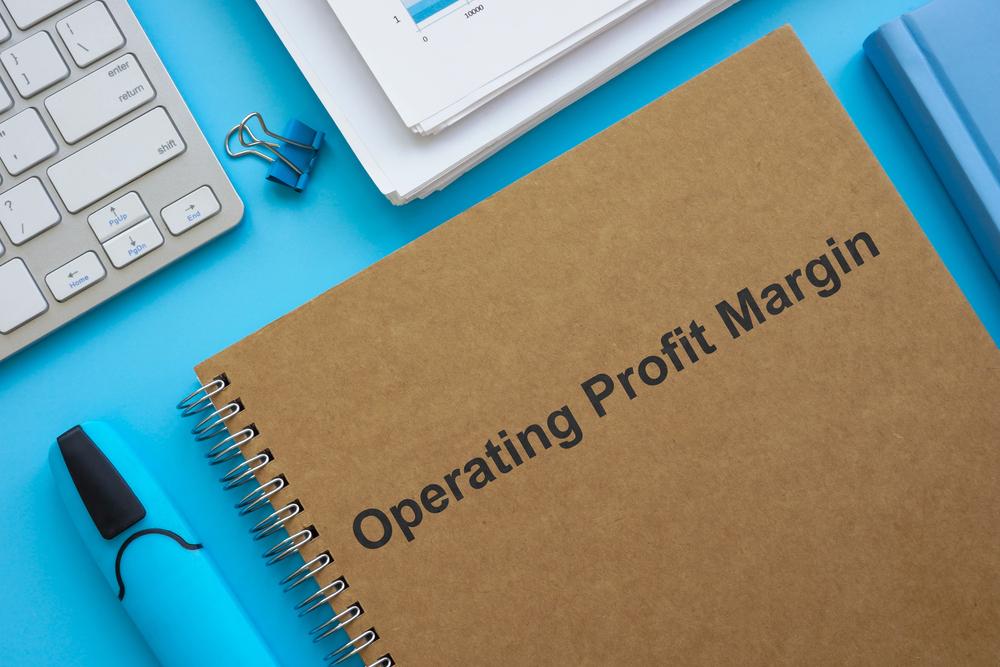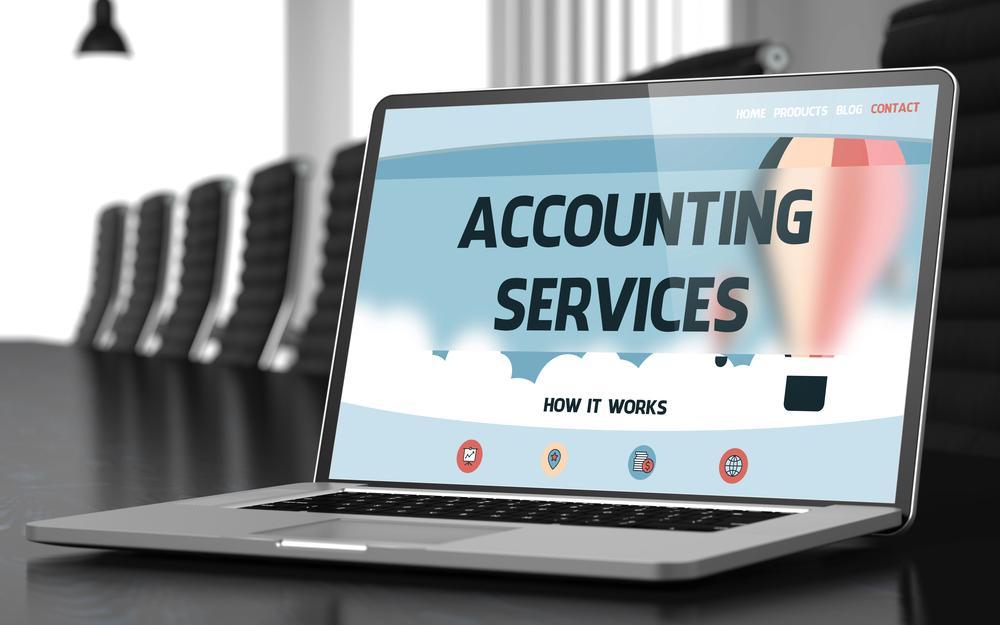The Ultimate Guide to Payroll Management for Jersey Shore Seasonal Businesses
Introduction: The Unique Payroll Landscape of Jersey Shore Businesses
As the sun-soaked beaches of the Jersey Shore come alive each summer, so does a vibrant ecosystem of seasonal businesses. From bustling boardwalk shops to packed restaurants and lively entertainment venues, these enterprises face a unique set of challenges when it comes to payroll management. Understanding this distinctive landscape is crucial for business owners looking to navigate the complexities of seasonal employment successfully.

Overview of the seasonal business cycle in Jersey Shore
Overview of the seasonal business cycle in Jersey Shore
The Jersey Shore’s business cycle is as predictable as the tides, with a surge of activity from Memorial Day to Labor Day. This compressed timeframe creates a frenzy of hiring, training, and managing a temporary workforce. Businesses must rapidly scale up operations, often increasing their staff tenfold in a matter of weeks. As the season winds down, they face the equally challenging task of efficiently scaling back while ensuring all payroll obligations are met.
Key challenges faced by seasonal employers
Seasonal employers at the Jersey Shore grapple with several unique challenges:
- Rapid workforce fluctuations
- High turnover rates
- Complex scheduling demands
- Cash flow management during off-peak months
- Compliance with seasonal employment laws
These challenges can create a perfect storm for payroll errors and compliance issues if not managed effectively.
The importance of efficient payroll management for business success
Efficient payroll management is not just about paying employees on time; it’s a critical component of overall business success for Jersey Shore seasonal operations. Accurate and timely payroll processes contribute to:
- Employee satisfaction and retention
- Compliance with state and federal regulations
- Improved cash flow management
- Enhanced business reputation
- Reduced risk of costly payroll errors and penalties
By mastering payroll management, seasonal businesses can focus on what they do best – providing unforgettable experiences to Jersey Shore visitors.
Understanding Seasonal Employment Laws in New Jersey
Navigating the legal landscape of seasonal employment in New Jersey is crucial for shore businesses. Let’s break down the key aspects:
Classification of seasonal workers vs. regular employees
In New Jersey, seasonal workers are typically defined as those who work for no more than ten months in a year for a seasonal employer. This classification is important because it affects various aspects of employment law, including:
- Eligibility for certain benefits
- Overtime pay requirements
- Unemployment insurance considerations
It’s essential for employers to accurately classify their workers to ensure compliance and avoid potential legal issues.
New Jersey-specific labor laws for seasonal businesses
New Jersey has several laws that specifically impact seasonal businesses:
- Wage and Hour Laws: Even seasonal employees are entitled to minimum wage and overtime pay under New Jersey law.
- Child Labor Laws: With many young workers in seasonal jobs, employers must be aware of restrictions on working hours and prohibited occupations for minors.
- Paid Sick Leave: New Jersey’s Earned Sick Leave Law applies to most employees, including seasonal workers.
Compliance requirements for shore businesses (e.g., boardwalk, hospitality)
Shore businesses face additional compliance requirements:
- Health and Safety Regulations: Boardwalk and amusement businesses must adhere to strict safety standards.
- Food Service Regulations: Restaurants and food vendors need to comply with health department regulations.
- Alcohol Service Laws: Businesses serving alcohol must ensure proper licensing and staff training.
Staying compliant with these regulations is crucial for avoiding fines and maintaining a good business reputation.
Seasonal Staffing Strategies
Effective staffing is the backbone of successful seasonal operations. Here’s how to optimize your approach:
Forecasting staffing needs based on historical data
Accurate forecasting is essential for efficient payroll management. Consider:
- Analyzing past seasons’ sales and foot traffic data
- Factoring in weather patterns and local events
- Using technology to predict staffing needs based on multiple variables
By forecasting effectively, you can avoid overstaffing (which leads to unnecessary payroll costs) or understaffing (which can result in poor customer service and lost revenue).
Recruiting and onboarding best practices for seasonal workers
To attract and quickly integrate seasonal staff:
- Start recruitment early, tapping into local schools and colleges
- Use social media and job fairs to reach potential employees
- Streamline the application process with online forms
- Develop a comprehensive but efficient onboarding program
- Clearly communicate expectations, including the seasonal nature of the job
Retaining top performers for future seasons
Building a pool of returning seasonal workers can significantly reduce recruitment and training costs. Strategies include:
- Offering competitive pay and potential bonuses for completing the season
- Providing opportunities for skill development
- Recognizing and rewarding outstanding performance
- Maintaining contact during the off-season
- Offering early commitment incentives for the next season
By implementing these strategies, Jersey Shore businesses can create a more stable and efficient seasonal workforce, leading to smoother payroll management and overall business success.Remember, while managing payroll for a seasonal business can be complex, partnering with a local expert like TMD Accounting can help ensure compliance, efficiency, and peace of mind throughout the busy summer months and beyond.

Payroll Setup for Peak Season
Payroll Setup for Peak Season
Choosing the Right Payroll System for a Fluctuating Workforce
Seasonal businesses at the Jersey Shore face unique challenges when it comes to payroll management, particularly due to the fluctuating nature of their workforce. Here’s how to choose the right payroll system to handle these dynamics effectively:
- Scalability: Ensure the payroll system can easily scale up or down based on the number of employees. Look for systems that allow for easy addition and removal of staff without incurring significant costs.
- Integration: The payroll system should integrate seamlessly with other HR and accounting software to streamline data flow and reduce manual entry errors.
- User-Friendly Interface: A system with an intuitive interface can simplify the payroll process for both administrators and employees, reducing the learning curve and improving efficiency.
- Compliance Features: Choose a system that automatically updates to comply with federal, state, and local labor laws, ensuring your business remains compliant with regulations.
Setting Up Efficient Time-Tracking Methods
Accurate time tracking is crucial for managing payroll during peak seasons. Here are some methods to consider:
- Digital Time Clocks: Invest in digital time clocks that can capture employee hours accurately and integrate with your payroll system.
- Biometric Scanners: Use biometric scanners to prevent buddy punching and ensure that time records are accurate.
- Mobile Apps: Implement mobile time-tracking apps that allow employees to clock in and out from their smartphones, especially useful for remote or off-site work.
- Automated Alerts: Set up automated alerts for missed punches or overtime, helping managers address issues promptly.
Implementing Flexible Payment Options
Offering flexible payment options can improve employee satisfaction and streamline payroll processes:
- Direct Deposit: Ensure that your payroll system supports direct deposit, allowing employees to receive their wages directly into their bank accounts.
- Pay Cards: Provide pay cards as an alternative for employees who do not have bank accounts. These cards can be reloaded each pay period.
- On-Demand Pay: Consider offering on-demand pay options, allowing employees to access a portion of their earned wages before the scheduled payday. This can be particularly appealing for seasonal workers who may need immediate access to funds.
Managing Payroll During the Summer Rush
Handling Overtime and Holiday Pay
During the busy summer months, managing overtime and holiday pay becomes critical:
- Overtime Policies: Clearly define and communicate your overtime policies to employees. Ensure your payroll system accurately calculates overtime pay based on hours worked.
- Holiday Pay: Establish policies for holiday pay, including eligibility criteria and rates. Ensure these policies are consistently applied and communicated to staff.
- Automated Calculations: Use payroll software that automates overtime and holiday pay calculations to reduce errors and ensure compliance with labor laws.
Strategies for Managing Cash Flow During Peak Season
Effective cash flow management is essential to meet payroll obligations during peak season:
- Cash Flow Forecasting: Regularly update cash flow forecasts to anticipate payroll needs and ensure sufficient funds are available.
- Reserve Funds: Maintain a reserve fund to cover unexpected payroll expenses or fluctuations in revenue.
- Invoice Management: Implement efficient invoice management practices to ensure timely payment from clients, improving cash flow.
Dealing with Last-Minute Schedule Changes and Their Payroll Impact
Last-minute schedule changes can complicate payroll processing. Here’s how to manage them:
- Flexible Scheduling Software: Use scheduling software that allows for easy adjustments and real-time updates.
- Communication Protocols: Establish clear communication protocols for notifying employees of schedule changes.
- Payroll Adjustments: Ensure your payroll system can quickly adjust for schedule changes, including overtime or shift differentials.
Tax Considerations for Jersey Shore Seasonal Businesses
Understanding Seasonal Tax Obligations
Seasonal businesses have specific tax obligations that must be managed carefully:
- Quarterly Tax Payments: Ensure that tax withholdings for seasonal employees are included in your quarterly estimated tax payments.
- Seasonal Business Tax Rules: Familiarize yourself with IRS guidelines for seasonal businesses, including any exemptions or special considerations.
Managing Tax Withholdings for Short-Term Employees
Accurate tax withholding is crucial for compliance and avoiding penalties:
- Employee Classification: Correctly classify seasonal workers as employees or independent contractors to determine appropriate tax withholdings.
- Withholding Calculations: Use payroll software that automates tax withholding calculations based on employee classification and earnings.
Leveraging Tax Credits and Incentives for Seasonal Employers
Take advantage of available tax credits and incentives to reduce your tax burden:
- Work Opportunity Tax Credit (WOTC): Explore eligibility for the WOTC, which provides tax credits for hiring individuals from targeted groups.
- State-Specific Incentives: Investigate any New Jersey-specific tax incentives for seasonal businesses.
Navigating Benefits and Insurance for Seasonal Staff
Options for Providing Benefits to Seasonal Workers
Offering benefits can help attract and retain seasonal employees:
- Health Benefits: Consider offering limited health benefits or access to health insurance marketplaces.
- Retirement Plans: Provide access to retirement savings plans, such as SIMPLE IRAs or 401(k) plans, even for seasonal workers.
Workers’ Compensation Considerations for High-Turnover Environments
Ensure your workers’ compensation coverage is adequate and compliant:
- Coverage Requirements: Verify that your workers’ compensation policy covers seasonal employees.
- Safety Training: Implement safety training programs to reduce the risk of workplace injuries and associated claims.
Health Insurance Requirements for Seasonal Businesses
Understand your obligations under the Affordable Care Act (ACA) and other regulations:
- ACA Compliance: Determine if your business is subject to ACA requirements for providing health insurance based on the number of full-time equivalent employees.
- Seasonal Worker Exemptions: Explore any exemptions or special provisions for seasonal workers under the ACA.
By implementing these strategies, Jersey Shore seasonal businesses can effectively manage payroll, stay compliant with regulations, and ensure a smooth operation during the busy summer months. Partnering with a local expert like TMD Accounting can further streamline these processes and provide peace of mind.
Technology Solutions for Seasonal Payroll Management
In today’s digital age, leveraging technology is crucial for efficient seasonal payroll management. Here are some key solutions to consider:
Cloud-Based Payroll Systems for Remote Access
Cloud-based payroll systems offer numerous advantages for seasonal businesses:
- Accessibility: Access payroll data from anywhere, perfect for managing multiple locations or working remotely.
- Scalability: Easily adjust to fluctuating workforce sizes without system overhauls.
- Real-Time Updates: Ensure compliance with the latest tax laws and regulations automatically.
- Data Security: Benefit from enhanced security measures to protect sensitive payroll information.
Mobile Time-Tracking Apps for On-the-Go Employees
Mobile apps can revolutionize time tracking for seasonal workers:
- GPS-Enabled Clock-Ins: Verify employee locations when they clock in and out.
- Offline Functionality: Allow time tracking even in areas with poor internet connectivity.
- Customizable Alerts: Set up notifications for overtime or missed clock-ins.
- Employee Self-Service: Enable workers to view schedules, request time off, and check pay stubs.
Integrating Payroll with Other Business Systems
Seamless integration can significantly improve efficiency:
- POS Integration: Automatically sync sales data with payroll for commission calculations.
- Scheduling Software: Link scheduling tools with payroll to ensure accurate time tracking and labor cost management.
- Accounting Systems: Connect payroll with your accounting software for streamlined financial reporting.
- HR Management: Integrate with HR systems for a holistic view of employee data and performance.

Compliance and Record-Keeping for Seasonal Operations
Compliance and Record-Keeping for Seasonal Operations
Maintaining compliance is crucial for seasonal businesses to avoid legal issues and penalties.
Essential Records to Maintain for Seasonal Employees
Keep the following records for each seasonal employee:
- Personal information (name, address, Social Security number)
- Employment dates and job classification
- Time and attendance records
- Pay rate and wage history
- Tax withholding forms (W-4)
- I-9 forms for employment eligibility verification
- Any benefits enrollment information
Audit Preparation for Seasonal Businesses
To be audit-ready:
- Regularly review and update employee classifications
- Maintain organized digital and physical records
- Conduct internal audits to identify and address potential issues
- Keep detailed records of overtime calculations and payments
- Document all payroll policies and procedures
Strategies for Year-Round Compliance in a Seasonal Business
- Stay Informed: Regularly review updates to labor laws and tax regulations.
- Use Compliance Calendars: Set reminders for important filing dates and deadlines.
- Implement Automated Compliance Checks: Use payroll software with built-in compliance features.
- Provide Ongoing Training: Ensure staff is up-to-date on compliance requirements.
Financial Planning and Budgeting for Seasonal Payroll
Effective financial planning is crucial for managing the ebb and flow of seasonal business.
Forecasting Payroll Expenses for the Season
- Analyze historical data from previous seasons
- Consider factors like expected business growth or contraction
- Account for potential changes in minimum wage or overtime regulations
- Use scenario planning to prepare for different levels of business activity
Managing Cash Reserves for Off-Season Payroll Obligations
- Set aside a percentage of peak season revenue for off-season expenses
- Consider opening a separate savings account for payroll reserves
- Explore lines of credit or short-term financing options as a backup
Strategies for Year-Round Financial Stability
- Diversify revenue streams to reduce seasonal fluctuations
- Offer year-round services or products to complement seasonal offerings
- Implement a flexible workforce strategy, balancing full-time and seasonal staff
- Consider revenue-sharing or profit-sharing models to align employee compensation with business performance
Handling End-of-Season Payroll Processes
Proper management of end-of-season payroll is crucial for maintaining good relationships with seasonal employees and ensuring compliance.
Final Paycheck Procedures for Seasonal Employees
- Calculate all outstanding wages, including any overtime or bonuses
- Process and distribute final paychecks in accordance with state laws
- Provide clear documentation of final pay calculations
- Collect any company property (uniforms, equipment, etc.)
Managing Unemployment Claims in the Off-Season
- Respond promptly to unemployment claims
- Maintain accurate records of employment dates and reasons for separation
- Understand your state’s specific rules for seasonal unemployment claims
- Consider implementing a return offer program to reduce unemployment claims
Year-End Reporting and Tax Form Distribution
- Prepare and distribute W-2 forms to all employees by January 31
- File Form 941 for quarterly payroll tax reporting
- Complete any required state and local tax filings
- Conduct a year-end payroll reconciliation to ensure accuracy
By implementing these technology solutions, compliance strategies, financial planning techniques, and end-of-season processes, Jersey Shore seasonal businesses can effectively manage their payroll operations. Remember, partnering with a local expert like TMD Accounting can provide additional support and ensure you’re maximizing the benefits of these strategies while staying compliant with all relevant regulations.
Preparing for Next Season: Payroll Process Improvement
Analyzing Payroll Data to Optimize Future Seasons
To prepare for the next busy season, it’s crucial to analyze payroll data from previous years. This analysis can help identify patterns, inefficiencies, and opportunities for improvement. Here are some steps to consider:
- Historical Data Review: Examine payroll records to understand peak hiring times, average hours worked, and overtime trends. Identify any discrepancies or frequent errors that occurred.
- Cost Analysis: Break down payroll costs by department, role, and time period to pinpoint areas where expenses can be reduced without compromising service quality.
- Performance Metrics: Assess employee performance metrics related to payroll, such as attendance, punctuality, and productivity. Use this data to refine hiring criteria and training programs.
Implementing Feedback from Seasonal Staff
Seasonal employees can provide valuable insights into the payroll process. Implementing their feedback can lead to significant improvements:
- Surveys and Interviews: Conduct end-of-season surveys or exit interviews to gather feedback on payroll processes, including time tracking, pay accuracy, and communication.
- Feedback Analysis: Analyze the feedback to identify common issues or suggestions for improvement. Prioritize changes that will have the most significant impact on employee satisfaction and efficiency.
- Action Plan: Develop an action plan to address the feedback. This might include updating payroll software, improving communication channels, or providing additional training for payroll staff.
Planning Technology Upgrades and Process Enhancements
Investing in technology and process enhancements can streamline payroll management for the next season:
- Payroll Software Upgrades: Consider upgrading to more advanced payroll software that offers features like automated tax calculations, compliance updates, and integration with other business systems.
- Time-Tracking Solutions: Implement or upgrade time-tracking solutions to ensure accurate and efficient recording of employee hours. Mobile apps and biometric systems can reduce errors and improve convenience.
- Process Automation: Automate repetitive payroll tasks, such as data entry and report generation, to free up time for more strategic activities. Use software that supports automated workflows and alerts.
Case Study: Successful Payroll Management at a Jersey Shore Boardwalk Business
Real-World Example of Effective Seasonal Payroll Strategies
Consider a Jersey Shore boardwalk business that successfully managed its seasonal payroll by implementing several key strategies:
- Early Planning: The business began planning for the peak season well in advance, using historical data to forecast staffing needs and payroll expenses.
- Technology Integration: They integrated their payroll system with their point-of-sale (POS) and scheduling software, ensuring seamless data flow and reducing manual entry errors.
- Employee Engagement: The business maintained high employee morale by providing transparent communication about payroll policies and offering flexible payment options like direct deposit and pay cards.
Lessons Learned and Best Practices
From this case study, several best practices emerged:
- Proactive Planning: Start planning for the next season early, using data-driven forecasts to make informed decisions.
- Leveraging Technology: Invest in integrated payroll and HR technology to streamline processes and improve accuracy.
- Employee Communication: Maintain clear and consistent communication with employees about payroll policies and procedures to build trust and reduce confusion.
How TMD Accounting Can Support Your Seasonal Business
Overview of Specialized Services for Jersey Shore Businesses
TMD Accounting offers a range of specialized services tailored to the unique needs of Jersey Shore seasonal businesses:
- Customized Payroll Solutions: TMD Accounting provides customized payroll solutions that can handle the complexities of seasonal employment, including fluctuating workforce sizes and variable hours.
- Compliance Assistance: Stay compliant with federal, state, and local labor laws with TMD Accounting’s expert guidance and automated compliance features.
- Tax Management: Benefit from comprehensive tax management services, including accurate tax withholding, quarterly tax payments, and leveraging available tax credits and incentives.
Benefits of Partnering with a Local Accounting Firm Familiar with Seasonal Challenges
- Local Expertise: TMD Accounting understands the specific challenges faced by Jersey Shore businesses and can provide tailored advice and solutions.
- Personalized Service: Enjoy personalized service and support from a team that is dedicated to helping your business succeed.
- Peace of Mind: Focus on running your business while TMD Accounting handles the intricacies of payroll management, ensuring accuracy and compliance.
Conclusion: Mastering Seasonal Payroll for Long-Term Success
Recap of Key Strategies
To master seasonal payroll management, consider the following key strategies:
- Analyze Payroll Data: Use historical data to identify trends and optimize future payroll processes.
- Implement Feedback: Gather and act on feedback from seasonal staff to improve payroll accuracy and employee satisfaction.
- Upgrade Technology: Invest in advanced payroll and time-tracking solutions to streamline processes and enhance efficiency.
- Plan Proactively: Start planning early to ensure you are prepared for the next peak season.
Action Steps for Implementing Effective Payroll Management
- Review and Analyze Data: Conduct a thorough review of your payroll data from previous seasons.
- Gather Feedback: Collect feedback from seasonal employees and identify areas for improvement.
- Invest in Technology: Upgrade your payroll and time-tracking systems to leverage the latest technology.
- Partner with Experts: Consider partnering with a local accounting firm like TMD Accounting for specialized support and guidance.
Invitation to Contact TMD Accounting for Personalized Assistance
Ready to take your seasonal payroll management to the next level? Contact TMD Accounting today for personalized assistance and expert support tailored to the unique needs of Jersey Shore businesses. With nearly 40 years of experience, TMD Accounting can help you streamline your payroll processes, ensure compliance, and achieve long-term success. Call us at 1-856-228-2205 to get started.


































